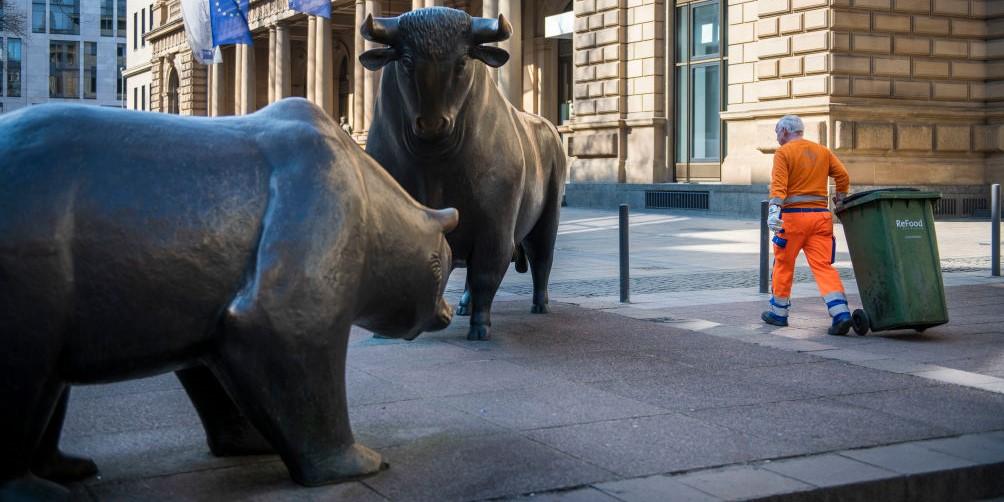What to Do With Your 401(k) in a Bear Market — All the Details
Your retirement savings are precious. Here’s how to handle your 401(k) in a bear market and recession. It's important for you to be prepared.
June 15 2022, Published 2:18 p.m. ET

Your retirement savings are precious, especially when the U.S. economy’s future is so uncertain. Amid an ongoing pandemic, the war in Ukraine, hyperinflation, and a looming recession, future retirees want to know what to do with a 401(k) in a bear market.
The fate of your 401(k), a type of U.S. retirement savings account, during a bear market or recession depends on how long you have until retirement, your overall risk tolerance, and your unique savings goals.
What to do with a 401(k) during a recession or bear market
Bear markets and recessions have specified entry points. It still isn't clear exactly when we’ll enter a recession, but the U.S. stock market is already in the bear territory after five straight days of losses for the S&P 500. Many experts say a recession is coming sometime in 2023.
Your 401(k) is made up of investments, so the state of the economy directly impacts your retirement savings. However, these dips historically recover. That’s why many experts say to leave your 401(k) alone and let it ride out the bad weather. According to Ellevest CEO Sallie Krawcheck, “We’ve recovered from every ‘bear market’ in history and come out ahead. We’ve recovered from every recession or depression in history and come out ahead.”
Depending on your time horizon, or the length of time until you want to sell your investments, this may be easier said than done. For example, a 25-year-old investor with 40 years until retirement is more likely to see their investments recover than a 60-year-old investor with only five years until retirement.
However, 401(k) investing strategies usually shift the closer you get to retirement. Ideally, your 401(k) will be more liquid as you age, which reduces your exposure to risk.
Switching to primarily cash or liquid assets in your 401(k) too early can make you more susceptible to the pangs of inflation. The cost of living is up 8.6 percent in the year ending in May, and that number only increases over time. The more cash you have during a bear market or recession, the more likely it is that your money will lose purchasing power. As scary as it can be to stay invested in hard times, removing yourself from the emotional rollercoaster of the day-to-day can be beneficial.
Granted, you can reallocate your 401(k) investments to better prepare you for retirement. Be sure to speak with a financial adviser that holds a fiduciary duty to you.
Should you reduce your 401(k) contribution in a bear market?
You may be tempted to reduce your cash contributions to your 401(k) during economic struggles. However, investing in stocks and funds when the market is down actually lowers your cost basis. Assuming the investments recover, your overall return on your initial investment would be higher than if you had halted or reduced your investment.
This process is called dollar-cost averaging. Last year, a Charles Schwab study reported dollar-cost averaging to be more than three times as lucrative as staying in cash.

